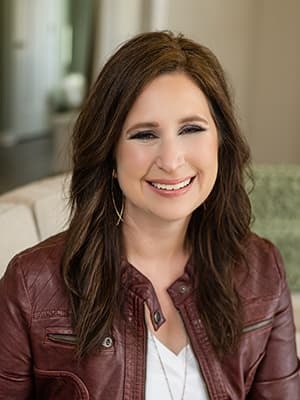
A long history of discriminatory real estate practices—including past policies held by REALTOR® organizations—has made it difficult for people of color to break into homeownership. Real estate professionals today are in a key position to help undo some of that harm and lead cultural change around housing, Julia Lashay Israel, head of inclusion and belonging at Keller Williams Realty International, told attendees at a Sunday session during NAR NXT, The REALTOR® Experience in Orlando, Fla.
Standing as a model are the Minneapolis Area Association of REALTORS® and the California Association of REALTORS®, both of which recently laid out plans to support housing equity in their respective states.

Recent reports continue to show the racial homeownership gap in the U.S. is widening. Whites accounted for 88% of all buyers over the past year, while Hispanics accounted for 8%, and both Blacks and Asians each accounted for 2%. The share of White and Hispanic home buyers grew year over year, while the share of Black and Asian buyers decreased, according to the National Association of REALTORS®’ 2022 Profile of Home Buyers and Sellers.
“Housing affordability and limited inventory impacted the buying power of all buyers. However, the greatest impact was felt by Black and Asian Americans,” Jessica Lautz, NAR’s vice president of demographics and behavioral insights, said at a separate session at NAR NXT. “Population growth among Hispanic Americans likely drove their increase, while many White Americans are repeat buyers with housing equity that allows them to make easier trades in today’s market.”
The Agent’s Role in the Conversation
Israel shared with attendees how they can be part of changing the ownership gap, including:
- Report violations. Many real estate professionals don’t know how to report fair housing violations or discrimination complaints that they witness, Israel said. Don’t let slide situations you know about, like a fellow agent refusing to show a house to a person of color, because “this continues to perpetuate if you don’t report it,” she added. Any violations can be reported to the HUD Office of Fair Housing and Equal Opportunity. Also, violations committed by real estate pros should be reported to local REALTOR® associations for accountability.
- Build awareness. “Be aware of the inequities and inequalities, and acknowledge that it happens so we can start doing something about it,” Israel said. Embrace diversity and learn about cultural differences to build on that awareness. Further, implement consistent practices and policies for showings and listing presentations to avoid unconscious bias.
- Refuse bad actors. Clients may not know that certain requests are discriminatory, even if they are well-intentioned. Israel offered an example of a seller who asked that only a Black family purchase their house to help close the homeownership gap. “We can’t do that. It’s discriminatory. But sometimes, the client doesn’t know that,” Israel said. “It’s our job to have the conversation.” Educate your clients upfront during buyer presentations and listing appointments to avoid facing an awkward moment during the transaction, Israel said. Many existing real estate forms include the agent’s role in adhering to fair housing laws. Highlight the language and talk about what it means with clients, she suggested.
- Get involved. Be part of the voice for change by getting involved in local and national associations as well as community and industry boards and committees. Join zoning and planning commissions so you’re aware of policy discussions before laws are made that affect others. Consider joining multicultural trade associations, like NAHREP and NAREB, to be part of ongoing conversations and efforts. “It is our role to be involved in this industry, which sees the largest transfers of wealth in America,” Israel said. “It is a big deal what we do, and we need to get involved and take an active role.”









